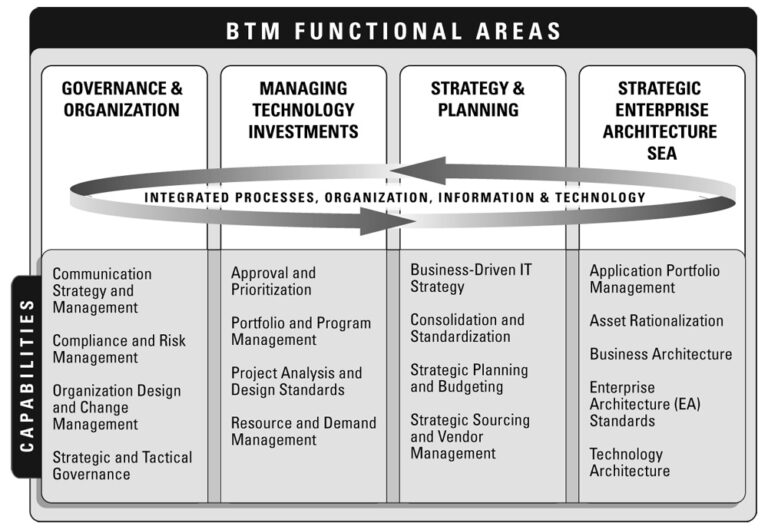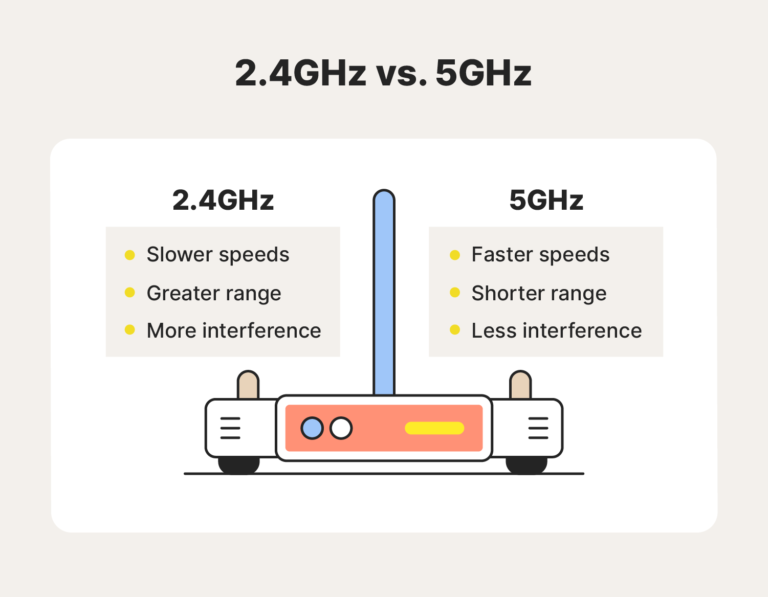Do Mirrors Block Wi-Fi?
Do Mirrors Block Wi-Fi? Wi-Fi technology is a crucial component of modern living, allowing us to stay connected to the internet, but it can be affected by interference from other objects and materials. One such material that may affect Wi-Fi signals is mirrors. Mirrors can potentially block or reduce the strength of incoming and outgoing Wi-Fi signals, but the effects vary depending on the type of mirror and its size. In general, thicker and larger mirrors are more likely to disrupt Wi-Fi signals than thinner and smaller mirrors, but it is still possible for thinner and smaller mirrors to block Wi-Fi too. To protect your Wi-Fi connection from being blocked or weakened by a mirror, you can place the router at a distance from the mirror or use a Wi-Fi signal booster.
What Is Wi-Fi?
Wi-Fi is short for Wireless Fidelity and is a technology that allows devices such as computers, tablets, and smartphones to connect to the internet without the need for wires. It operates on radio waves and works by sending and receiving signals over a network of antennas, much like a radio station. Wi-Fi is the most widely used form of wireless technology, and is found in homes, businesses, and public spaces around the world. It is also the technology that powers our mobile devices and is used to stream music and movies, surf the web, and access social media. Wi-Fi gives us the freedom to move around and access the internet wherever and whenever we want. It is an integral part of modern life, and it is worth understanding how it works and what affects it.
How Do Mirrors Interfere with Wi-Fi?
Many people have asked the question: do mirrors block Wi-Fi? The answer is yes, they can. Mirrors can interfere with Wi-Fi signals in a variety of ways, and understanding how this happens can help you troubleshoot any connection issues you might be having.
Wi-Fi signals are electromagnetic waves that travel through the air, and a mirror can act as a barrier and reflect them. This means that instead of the signal traveling in a straight line, it is bounced off the mirror and can be blocked or weakened. Depending on the size and position of the mirror, this can cause interference in the signal strength.
Besides the reflection of the signal, mirrors can also dampen the signal by absorbing some of the energy. This is because mirrors are made of materials that absorb electromagnetic waves, just like any other object. So, the closer a mirror is to the router, the more likely it is to cause interference.
In addition, the shape of the mirror can also play a role in interfering with Wi-Fi signals. Mirrors with curved or rounded edges can cause more interference than flat or straight mirrors because they can reflect the signal in multiple directions.
Finally, it’s important to note that mirrors can also interfere with other wireless devices, such as Bluetooth headsets or cell phones. So, if you’re having any wireless connection issues, it’s worth considering whether there are any mirrors in the vicinity.
Factors Affecting Wi-Fi Interference from Mirrors
We all know that Wi-Fi signals are fragile and can be disrupted by a variety of factors. Mirrors are often cited as one of these factors, and many people are wondering whether or not mirrors can actually block or interfere with Wi-Fi signals. To answer this question, we need to consider the various factors that can affect Wi-Fi interference when it comes to mirrors.
The type of mirror material is one of the most important factors in determining whether or not a mirror will interfere with Wi-Fi signals. Metal mirrors are more likely to interfere with signals than glass or plastic mirrors, due to their higher reflectivity. The thickness of the mirror also affects signal interference, as thicker mirrors can cause more interference than thinner ones.
The distance between the mirror and the Wi-Fi router is also important, as a close proximity will increase the chance of interference. Mirrors that are placed between the router and the device attempting to connect to the Wi-Fi signal are more likely to cause interference than mirrors that are placed in a different location.
Finally, the orientation of the mirror relative to the router and the device is important. Mirrors that are placed perpendicular to the router and the device are more likely to cause interference than those placed parallel.
It is important to note that not all mirrors will interfere with Wi-Fi signals. As mentioned above, the type of material, the thickness, the distance, and the orientation all affect whether or not a mirror will cause interference. With this in mind, it is possible to avoid Wi-Fi interference caused by mirrors by taking these factors into consideration.
Ways to Minimize Wi-Fi Interference from Mirrors
Mirrors are often used in a variety of settings, from residential to commercial. However, many people are unaware that mirrors can actually interfere with Wi-Fi signals. In fact, the reflective surface of a mirror can cause a decrease in the strength of the Wi-Fi signal in the area. To make matters worse, the interference can be compounded if there are multiple mirrors in the vicinity. Fortunately, there are several ways to minimize this type of interference.
One of the best ways to combat Wi-Fi interference from mirrors is to use an external antenna. External antennas can be placed in an elevated position away from mirrors, which will help to improve the signal strength and reduce interference. Additionally, using a directional antenna can further help to minimize the interference.
Another way to reduce interference from mirrors is to install a Wi-Fi extender. Wi-Fi extenders are devices that broadcast a stronger signal and can help to improve the Wi-Fi signal in the area. Furthermore, using a wireless mesh system can also help to minimize interference caused by mirrors.
Finally, another way to reduce interference from mirrors is to move the router away from mirrors. When placing the router, it should be placed in an area where there is no direct line of sight between the router and the mirror, as this will help to reduce the interference.
Overall, mirrors can cause a decrease in the strength of the Wi-Fi signal in the area. To minimize this interference, it is important to use an external antenna, install a Wi-Fi extender, use a wireless mesh system, or move the router away from mirrors. Doing so can help to improve the Wi-Fi signal in the area and reduce the interference caused by mirrors.
Pros and Cons of Using Mirrors to Block Wi-Fi
Mirrors are often seen in homes and businesses, providing a reflective surface and a decorative touch. But, do mirrors block Wi-Fi signals? The answer is, it depends. While some types of mirrors can actually block or weaken Wi-Fi signals, other types of mirrors, like the ones found in bathrooms or bedrooms, will not have any effect on Wi-Fi signals.
On one hand, mirrors that are made out of metal or other highly reflective materials can block Wi-Fi signals. This is because the metal absorbs the signal, making it difficult for it to reach the device. On the other hand, most mirrors, including the ones found in bathrooms and bedrooms, are made out of glass and are not designed to block Wi-Fi signals. In fact, they can actually help to boost the signal by reflecting it in different directions.
When it comes to using mirrors to block Wi-Fi signals, it is important to consider the pros and cons. On the plus side, mirrors can be used to block or weaken Wi-Fi signals in areas where the signal is strong, such as a conference room or office. On the other hand, mirrors can also weaken the signal in areas where the signal is weak, and this can be a problem if you’re trying to use the internet.
Ultimately, it is important to consider the type of mirror you are using and where the Wi-Fi signal is coming from. If you’re looking to block the signal in a specific area, then a metal mirror might be the best option. However, if you’re looking to boost the signal, then a glass mirror might be the better option.
Alternatives to Blocking Wi-Fi with Mirrors
Wi-Fi blocking is a common issue faced in many places, and mirrors can be an effective solution for preventing its transmission. However, there are alternative solutions that can be just as effective. One option is to install signal-blocking paint, which can be applied to walls and other surfaces to prevent the signal from passing through. Another solution is to use signal-blocking curtains or blinds, which can be used to physically block the signal from entering the room. A third option is to use a Faraday cage, which is a metal box designed to completely block out any form of electronic signals. Whichever solution you choose, make sure to take the necessary steps to ensure that your Wi-Fi remains secure.
FAQs About the Do Mirrors Block Wi-Fi?
Q1: Does having a mirror in my house affect my Wi-Fi connection?
A1: No, mirrors do not block Wi-Fi signals. Wi-Fi is a radio signal which is not affected by physical objects like mirrors.
Q2: Does a mirror reflect Wi-Fi signals?
A2: No, mirrors do not reflect Wi-Fi signals. Wi-Fi signals travel through the air and are not affected by physical objects like mirrors.
Q3: Are there any other materials that can block or interfere with Wi-Fi signals?
A3: Yes, certain materials such as thick walls, metal, and water can interfere with Wi-Fi signals. Additionally, radio frequency interference from other devices such as cordless phones and microwaves can also interfere with Wi-Fi signals.
Conclusion
In conclusion, mirrors do not block Wi-Fi signals. The metal frame and backing of the mirror may have an effect on Wi-Fi signals, but it is usually quite minimal and easily mitigated. If you are having Wi-Fi issues due to a mirror, it is likely not the mirror itself but something else in the environment.



